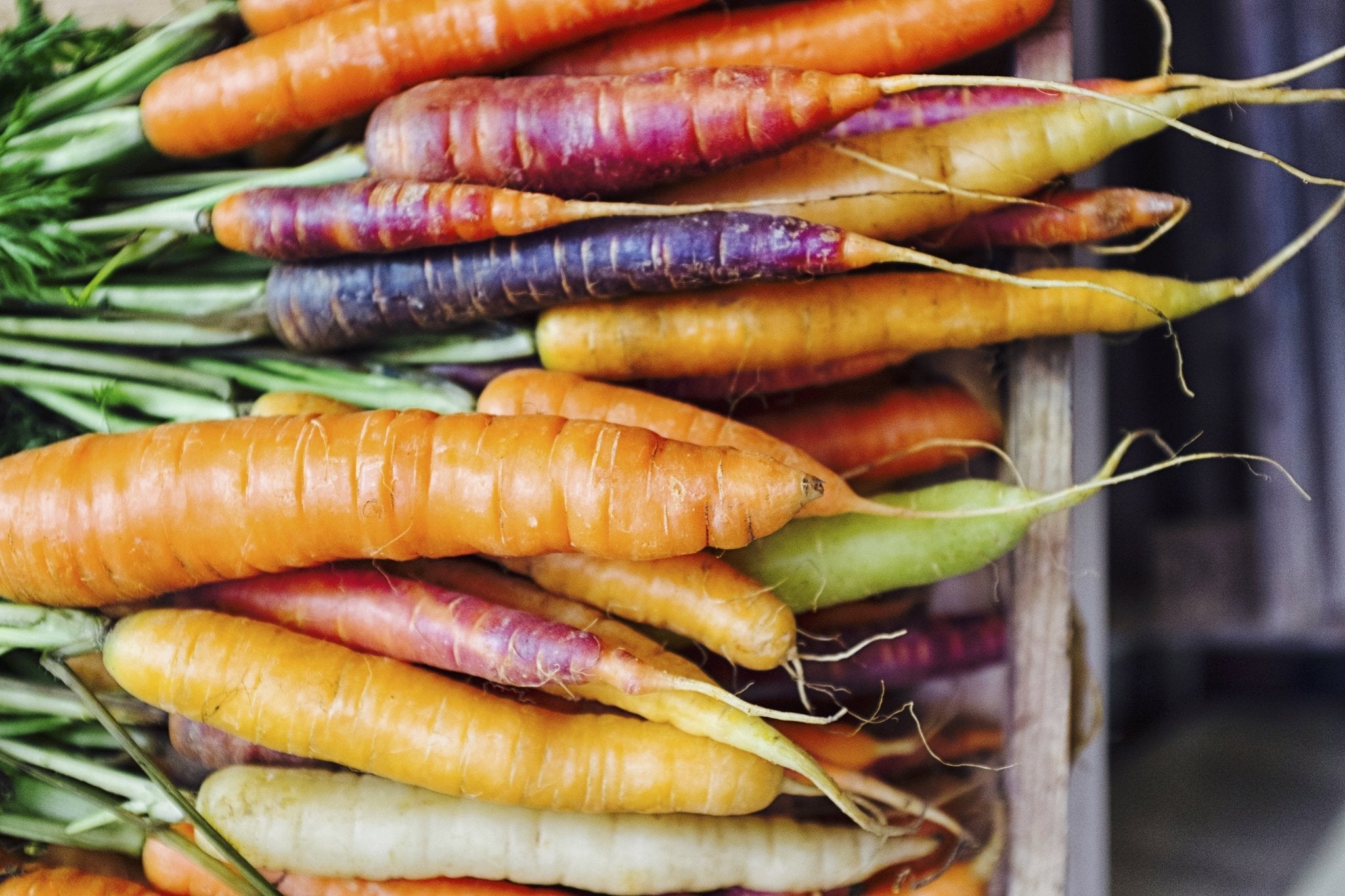
How Eating Seasonally Helps Organic Farmers (and You!)
Seasonal is a buzzword in organic food, one that’s easy for marketers to toss around because there’s no legal definition or required certification. The more ubiquitous a word becomes, the easier it is to forget why we started using it in the first place. While eaters have the choice to practice seasonal eating, for farmers, seasonal is one of the most important words in the industry. To understand why, let’s step onto the farm.
Winter
In winter, temperate climate vegetable farms (which we’ll focus on here) are relatively calm, their crops buried under snow or growing slowly. Day length regulates plant growth, so even farms that have greenhouses experience slower growth until day length exceeds 10-hours again. This translates to slow-motion farming and a limited inventory. Less product means less cash flow when a farmer needs it most. Winter is also the season of stocking up: seed-starting supplies, soil amendments, and seeds for the entire growing season are purchased now. Tools and equipment often need repairs or replacement. Winter is challenging not because it’s cold, but because farmers face the majority of their annual expenditures while they have the smallest income. Buy seasonal produce whenever possible in winter. It helps farmers through their leanest time of year, and there’s a bonus in it for you: vegetables grown in near-freezing temps are tastier.Spring
In spring, farmers experience a boom of leafy green and root crops. Strawberries and asparagus are on the horizon, but for now there’s an excess of a limited selection of vegetables. The upside is that greens taste best this time of year, with cool air and ample moisture to keep them tender and sweet. Enterprising organic farmers also bring ephemeral treats to market, like the flowering kale stems (often called raab), garlic shoots (also scapes), or edible flowers. Become a green-machine in spring. Fresh spring greens are one of the vegetable-year’s finest delicacies, but don’t forget to freeze. Buying when abundant means lower prices, so get blanching and stock your freezer with peak-quality greens.Summer
We think of summer as the season of everything. On a vegetable farm, it’s really the season of fruit: sweet ones like berries and stone fruits, and savory ones like tomatoes, peppers, or eggplant. Summer also means limited shelf-life. Organic foods like berries cannot rely on fungicide to preserve them - they are seasonal to the extreme. Fresh strawberries or sweet corn are so full of sugar they may last only one (glorious) day or two. Late summer is when farmers plant fall and winter crops, and when they must decide how much to grow. Dedicated customers they can count on through the winter make it easier to improve the efficiency and profitability of their plantings. Summer is full of fleeting & delicious treats. Enjoy them by the handful and preserve some for later. Fruit, corn, green beans, and others are exceedingly easy to freeze. For dedicated seasonal eaters, summer and fall preservation is the key to a diverse diet come winter.Fall
Early fall is truly the season of everything – lingering summer fruits & vegetables mingle with fresh fall crops, offering the most abundant selection of the whole year. Farmers can ride the wave of plenty until mid-October or so (varies by region), then circle back to the greens and root crops of winter. This is fill-your-pantry season: scoop up all the winter squash, dried beans and grains you need while enjoying final tomatoes, peppers, and tender herbs each time you get them – you never know when frost will hit and stop the season until next year. For farmers, seasonality is a rule of the game. For eaters, it’s an opportunity to support the organic food system, learning to appreciate abundance and enjoy the creative challenge of scarcity. Even small changes in your diet and shopping habits can make a significant difference – resolve to try a more seasonal approach this year!Would you like to be the first to hear about our new products and more? Sign up for our Nature’s Path Newsletter.

